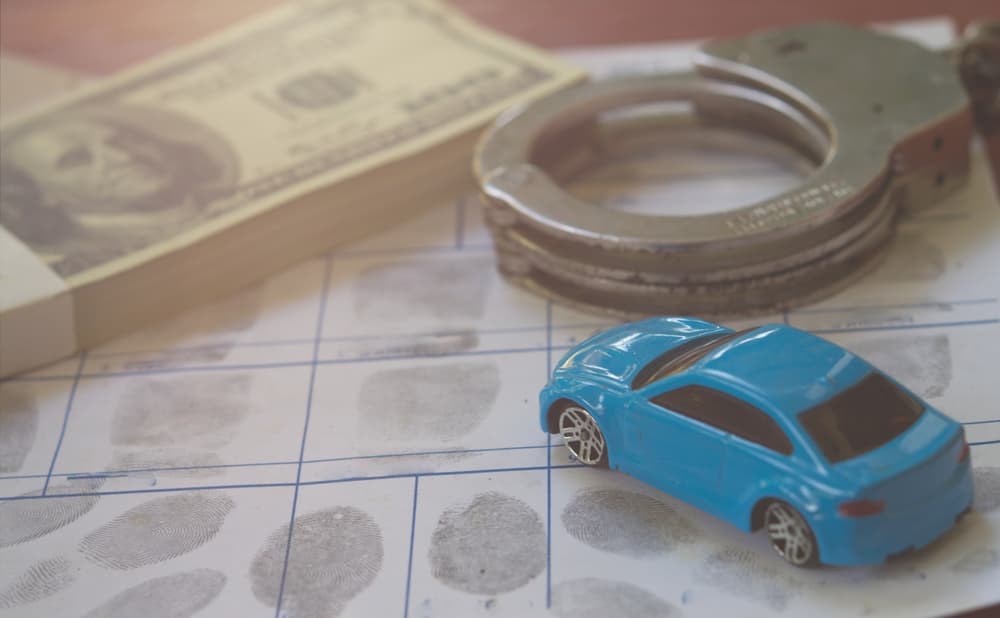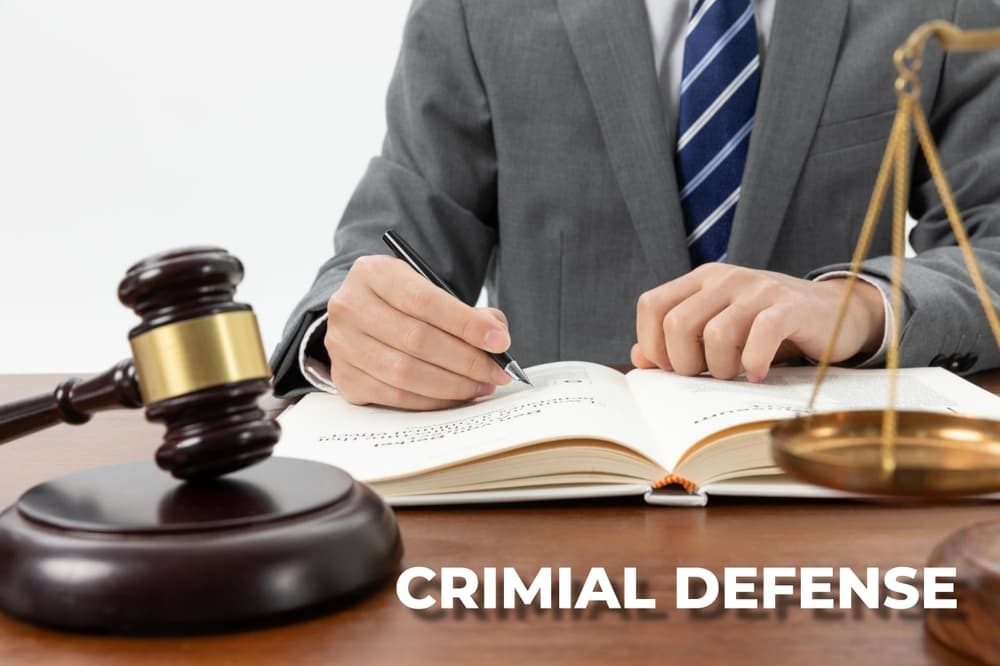A grand theft auto charge refers to the illegal act of stealing a motor vehicle with the intent to permanently deprive the owner of it. This crime is typically classified as a felony due to the value of the vehicle involved, which usually exceeds a specific monetary threshold, varying by jurisdiction. Potential penalties on conviction can include significant prison time and fines.
If you are currently facing a charge for grand theft auto, you need a skilled Houston theft attorney in your corner advocating for your rights. Your lawyer can first meet with you to discuss the circumstances of your arrest and determine your legal options for moving forward. In some cases, your seasoned defense lawyer can pursue a complete dismissal of your charge, while at other times, they may pursue a favorable plea deal from the state prosecutor handling your case.
Elements of a Grand Theft Auto Charge

To secure a conviction for grand theft auto, a prosecutor must establish several key elements beyond a reasonable doubt. Grand theft auto, commonly referred to as auto theft, involves the unlawful taking of someone else’s vehicle with the intent to permanently deprive the owner of it. The prosecutor must prove the following elements in court:
- Unlawful Taking – The prosecutor must demonstrate that the accused (i.e., defendant) took possession of a vehicle without the owner’s permission, which means that the defendant did not have any legal right to use or possess the vehicle at the time of the alleged theft.
- Intent to Permanently Deprive – It is not enough for the prosecution to show that the defendant merely borrowed the vehicle. The prosecutor must prove that the defendant intended to permanently deprive the owner of their vehicle. This intent can be inferred from the circumstances surrounding the act. For example, if the defendant drove the car away and did not return it or attempted to sell it, these actions indicate an intent to permanently deprive the owner.
- Value of the Vehicle – Grand theft auto typically applies to vehicles valued above a certain threshold, which varies by jurisdiction. In many places, this threshold is set at $500 or $1,000. The prosecutor must provide evidence showing that the value of the stolen vehicle exceeds this amount, which can be done through appraisals, invoices, or market value comparisons.
- Knowledge of Ownership – The prosecutor must establish that the defendant knew, or reasonably should have known, that the vehicle belonged to someone else. This may involve showing that the defendant acted in a manner that suggested they were aware they were taking someone else’s property.
- Evidence of Theft – Finally, the prosecution must present evidence linking the defendant to the crime, including eyewitness testimony, surveillance footage, fingerprints found on the vehicle, or any statements the defendant made that can indicate guilt.
Potential Penalties of a Grand Theft Auto Conviction
If someone is convicted of grand theft auto, they may face serious penalties, which can vary based on the jurisdiction and the specifics of the case. Grand theft auto is generally classified as a felony, and the potential penalties reflect the severity of the crime.
- Prison Time – A typical penalty for grand theft auto is a significant prison sentence. Depending on the state laws, a conviction can result in imprisonment ranging from one year to several years. For example, in many states, a first offense can carry a sentence of one to three years, while repeat offenders may face even harsher sentences – sometimes exceeding ten years. Some states may also have specific sentencing guidelines that can increase the length of imprisonment based on prior convictions.
- Fines – In addition to prison time, a court may impose hefty fines on those convicted of grand theft auto. These fines can vary widely but often range from several thousand to tens of thousands of dollars. The exact amount typically depends on the circumstances of the crime, the value of the stolen vehicle, and the defendant’s criminal history. Fines are intended to serve as a punishment and a deterrent to future criminal behavior.
- Probation – In some cases, especially for first-time offenders, a judge may impose probation instead of or in addition to prison time. Probation allows the individual to serve their sentence in the community under strict conditions, such as regular check-ins with a probation officer, attending counseling or rehabilitation programs, and avoiding any further legal trouble. Violating probation can result in additional penalties, including incarceration.
- Restitution – A convicted individual may also be ordered to pay restitution to the victim. Restitution is a court-ordered payment meant to compensate the victim for their losses, including the value of the stolen vehicle, repair costs, and related expenses. The court will determine the restitution amount based on evidence presented during the trial.
- Classifications and Enhancements – Depending on the situation, the crime may be classified differently, leading to more severe penalties. For instance, if the vehicle was taken during a violent crime or stolen from a person directly, the penalties can be enhanced, resulting in longer prison sentences and higher fines.
The specifics will depend on the jurisdiction and the particulars of the case, but the consequences can profoundly affect the convicted individual’s life.
Potential Collateral Consequences of a Grand Theft Auto Conviction

A conviction for grand theft auto can lead to several collateral consequences that extend beyond the immediate legal penalties, affecting various aspects of a person’s life. These consequences can be long-lasting and significantly affect an individual’s future.
- Employment Opportunities – One of the most significant collateral consequences of a grand theft auto conviction is its effect on employment prospects. Many employers conduct background checks before hiring, and a felony conviction can be a red flag. A felony record may limit job opportunities, particularly in industries that require driving or involve handling valuable assets. Some employers may outright refuse to hire someone with a theft conviction, believing it reflects a lack of integrity or responsibility.
- Housing Challenges – Individuals with a grand theft auto conviction may face difficulties finding housing. Many landlords conduct background checks and may be hesitant to rent to someone with a felony record, limiting housing options and making it challenging to secure a safe and stable living environment. In some cases, individuals may be required to disclose their criminal history on rental applications, which can lead to immediate disqualification.
- Loss of Professional Licenses – Certain professions require licensing or certification, and a grand theft auto conviction can jeopardize these credentials. For example, individuals working in fields such as healthcare, education, or finance may lose their licenses to practice if they are convicted of a felony. This loss can effectively end a career and hinder future job prospects in those areas.
- Effect on Relationships – A felony conviction can strain personal relationships. Friends and family members may feel disappointed or ashamed, leading to social isolation. Trust issues may arise, making it difficult to maintain close relationships, and the stigma of a criminal record can lead to feelings of shame and worthlessness.
- Difficulty in Obtaining Loans or Credit – A grand theft auto conviction can also affect an individual’s ability to secure loans or credit. Financial institutions often conduct background checks when evaluating loan applications. A felony record may result in higher interest rates or outright denial of credit, limiting access to essential financial resources.
- Ineligibility for Certain Benefits – Finally, a conviction can lead to ineligibility for specific government benefits, such as public assistance programs, housing assistance, or student financial aid, which can create significant financial hardships and limit educational opportunities.
These repercussions can make reintegration into society challenging and may hinder an individual’s ability to move forward positively following their conviction.
Successfully Defending Against a Grand Theft Auto Charge
When facing a grand theft auto charge, defendants can employ various legal defenses to challenge the prosecution’s case. These defenses aim to create reasonable doubt in the minds of jurors regarding the defendant’s guilt. The following are some common defenses against grand theft auto charges and the potential outcomes if these defenses are successful.
- Lack of Intent – One of the primary defenses is the argument that the defendant did not intend to permanently deprive the owner of the vehicle. If the defense can prove that the defendant borrowed the vehicle with the intention of returning it or that they mistakenly believed they had permission to use it, it can negate the intent required for a grand theft conviction. If successful, this defense may lead to a not-guilty verdict.
- Mistaken Identity – Another common defense is mistaken identity. The defendant may argue that they were wrongly accused and that someone else was responsible for the theft. This defense can be strengthened through alibi witnesses or video evidence showing the defendant was not at the scene of the crime. If the jury finds the defendant was misidentified, this determination can result in an acquittal.
- Consent – If the defendant can demonstrate that they had the owner’s consent to use the vehicle, it can be a strong defense. This defense may involve showing that the owner allowed the defendant to take the car or that there was a misunderstanding about permission. If proven, this a consent defense can lead to a dismissal of charges.
- Insufficient Evidence – A defense lawyer may argue that the prosecution has not provided enough evidence to support a conviction. This defense can include questioning the reliability of eyewitness testimony, the legitimacy of forensic evidence, or the overall lack of direct evidence linking the defendant to the crime. Insufficient evidence may lead to a dismissal or a not-guilty verdict.
- Duress or Coercion – In some cases, defendants may claim that they committed the crime under duress or coercion, meaning they were forced to steal the vehicle due to threats or intimidation. Convincingly demonstrating that the defendant was acting in fear for their life or safety may absolve them of criminal responsibility.
If any of these defenses are successful, the potential outcomes can vary. A successful defense can result in a complete acquittal, meaning the accused is found not guilty and faces no criminal penalties. In some cases, if the evidence is found lacking but not enough to clear the accused completely, they may receive a lesser charge or reduced penalties. Overall, effective legal defenses can significantly influence the outcome of a grand theft auto case, allowing accused individuals to avoid serious legal consequences.
Should You Take a Plea Deal or Take Your Case to Trial?

Deciding whether to take a plea deal or take a grand theft auto case to trial is a critical choice that can significantly affect the outcome of a case. Both options have advantages and disadvantages, and understanding these options can help defendants make an informed decision.
Taking a Plea Deal
A plea deal is an agreement between the defendant and the prosecution in which the defendant pleads guilty to a lesser charge or receives a reduced sentence in exchange for avoiding trial. Here are some reasons why a defendant may consider taking a plea deal:
- Reduced Sentences – Plea deals often result in lighter sentences. Instead of facing the maximum penalties for grand theft auto, including several years in prison, a defendant may receive probation or a shorter prison term.
- Certainty and Control – Going to trial involves uncertainty. There is always a risk of being found guilty and receiving a harsher sentence than what a plea deal offers. By accepting a plea, defendants can have more control over their outcomes.
- Quicker Resolution – Trials can take a long time to conclude due to court schedules and other factors. A plea deal allows for a faster resolution, which can be less stressful for the defendant and their family.
Taking the Case to Trial
On the other hand, opting for a trial has its own advantages. The following are some reasons a defendant may choose to go to trial:
- Innocence – If the defendant believes they are innocent or there is strong evidence to support their case, going to trial may be the better option. A jury may find them not guilty if the defense can effectively challenge the prosecution’s case.
- Potential for Acquittal – Trials provide the opportunity for the defense to present evidence, call witnesses, and create reasonable doubt, leading to an acquittal and no criminal record.
- Trial Rights – Defendants have the right to a fair trial, which includes the presumption of innocence. Some individuals may prefer to assert their rights and face the charges head-on.
Making the Decision
Ultimately, the decision to accept a plea deal or go to trial should involve careful consideration of the specific circumstances of the case, the strength of the evidence against the defendant, and the advice of a qualified attorney. A knowledgeable criminal defense lawyer can provide valuable insight into the best course of action based on the unique details of the situation.
Contact an Experienced Criminal Defense Attorney Right Away
If you are currently facing a charge for grand theft auto, you want a skilled legal team aggressively advocating for your interests. Your skilled defense lawyer can determine your available legal options, represent you during plea negotiations, or aggressively advocate for you in court in pursuit of the best possible resolution to your case.
Get a Free Consultation
Every DWI case is different, so for specific questions, please feel free to contact me directly at 713-222-2828. You can also contact me about your DWI case by filling in the following information. The first consultation is always free.

Leave A Comment